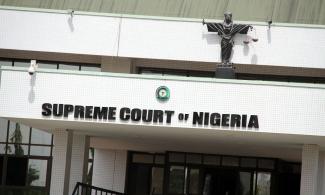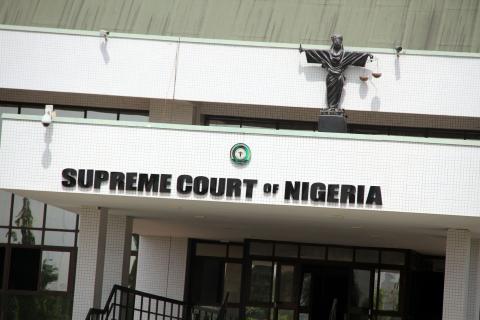
The Supreme Court, on Friday, resolved in favor of Iwaya, a Lagos community, a 33-year old land dispute between the community the Anglican Church.
The apex court allowed the appeal filed by Iwaya Community against the judgments of the Lagos State High Court and the Court of Appeal when it held that without proving to have been duly incorporated under the law, the church was legally incapable of instituting an action in court.
The matter dates back to 1984, when the Anglican Church, through its Lagos Diocese, filed a suit before the Lagos State High Court, claiming ownership of a vast portion of land at Iwaya. The church based its claim on a deed, while Iwaya community claimed to have directly bought the land from the Oloto Chieftaincy family, which was later joined in the suit as the seventh defendant.
In a judgment delivered in 1998 by Justice Fatai Adeyinka, the court upheld the claims of the church in part and held that the Iwaya Community was trespassing.
Dissatisfied with the High Court judgment, the community headed for the Lagos Division of the Court of Appeal, which, in 2002, dismissed the appeal in a unanimous decision.
After the second loss, the community engaged Mr.Ebun-Olu Adegboruwa, human rights advocate, to file an appeal against the judgment of the court of appeal before the Supreme Court.
In the appeal, the Iwaya community contended that the Anglican Church, before the trial court, was an unregistered entity, which could not own land, file a case in court or be a beneficiary of the judgment of a court of law.
In the lead judgment, the Supreme Court held that an incorporated company or registered trusteeship has the onus to prove its incorporation once same has not been conceded by the defendant.
The only way to prove its juristic personality, said the court, is to produce its certificate of incorporation.
The judgment re-affirmed the Supreme Court decision in the 1972 case of Registered Trustees of Apostolic Church v. A-G., Mid-Western Nigeria. In the case, the court held that the proof of incorporation must be established by the production of in evidence of the certificate of incorporation. In the event of failure to do so, any action initiated by such body will fail. This implies that such a plaintiff is not capable of suing and being sued.
The Supreme Court then held that the Lagos High Court judgment in favor of the Anglican Church, which was upheld by the Court of Appeal amounted to a nullity and set it aside.
In one of the concurring judgments, the Supreme Court reviewed the rules guiding pleadings and held that it is wrong to hold that a general traverse does not constitute a specific denial.

It held that a general traverse is effective to cast on the plaintiff the burden of proving the allegations denied.